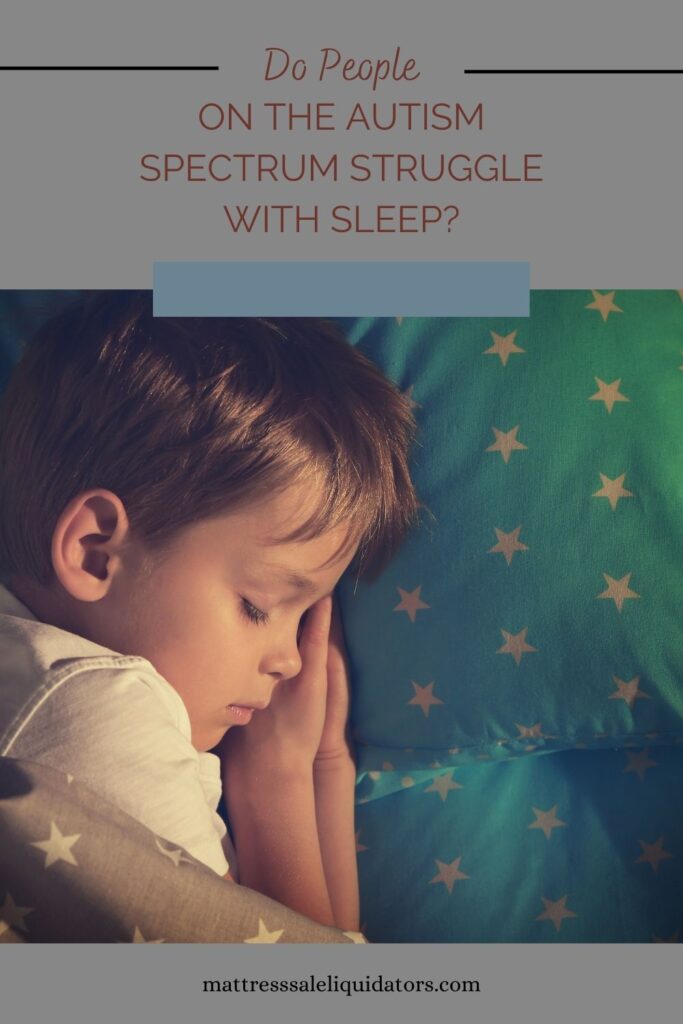Autism spectrum disorder is a relatively common neurodevelopmental disorder that affects the ability to communicate, repetitive behavioral patterns, and sensory issues. Symptoms can range from mild, formerly known as Asperger Syndrome, to severe, such as classic autism (also known as Kanner’s Syndrome). It has been found that up to 80% of children with autism spectrum disorder have problems with sleeping. In addition, autistic children have been found to take 11 additional minutes to fall asleep and sleep a total of 32.8 minutes less per night than neurotypical children. But why exactly is this? Could buying a new bed from a San Diego mattress sale help? Yes and no.

There are multiple reasons why an individual with autism may experience problems falling or staying asleep. Studies have shown that people with ASD do not spend as much time, only 15%, in the rapid eye movement (REM) stage of sleep, which is critical to getting a good night’s rest. In addition, some autistic people have been found to have irregularities in their circadian cycle, which is directly related to your sleep-wake cycle. This could be why sleep apnea has been found to be more common in autistic individuals. Other factors can play a role in this issue, including:
- Being sensitive to lights or sounds present
- Being occupied with “special interests,” even late into the night
- Other factors common in people with autism such as anxiety, depression, and/or ADHD.
It is important to ensure a child with autism has an environment that makes it easier for them to fall asleep. For instance, be sure to keep the lights very dim. Blackout curtains can be highly beneficial. You may even need to consider the specific sheets on their San Diego mattress, their pillow, and the pajamas they wear due to physical sensory issues. Keep toys out of sight as they may serve as a distraction to your child. Since autistic children prefer to stick to routines, set up a strict bedtime. Do not allow any caffeine or sugary foods or drinks to be consumed up to 4 hours before bed. This is important for just about anyone, but especially for children with autism. Encourage other healthy activities such as exercise. This will help tire the child out and make them be able to fall asleep faster and easier. It works for just about anyone!
It’s also critical to understand that getting a better night’s sleep will not cure autism, as there is no cure for ASD. Rather, it is important for all people, regardless of their neurological makeup, to get enough sleep so that they can function better during the day and even live longer. Whether you yourself fall somewhere on the autism spectrum or someone in your immediate family does, you may have considered taking advantage of San Diego mattress sale deals near you. Having a good bed to sleep on is a smart move no matter who you are. In addition, you should consult any concerns you have related to your or your loved one’s ASD and sleep with your primary care doctor right away.
